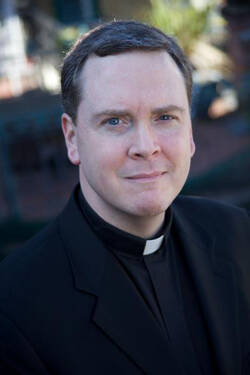Organizations as old as America rarely do anything completely unprecedented. For every “new” idea, there’s a pretty good chance that it’s been done before, in one way or another, during the course of 104 years of weekly publishing. This issue of America, however, is truly a first.
While we have always been committed, “on a wide and varied field of subjects,” as one of my predecessors put it, “to the principles enunciated by the Popes, the Vicars of Christ, and in the major statements of the American hierarchy,” America has never before been primarily responsible for conveying the words of a pope to an American audience. The fact that the current pope is a Jesuit is not irrelevant, of course, and neither is the fact that this interview is being simultaneously published by our fellow Jesuit journals in the world’s other major languages.
The situation is so unusual, however, that it might be helpful to know how it came about. As with a lot of things, it began with an innocent, offhand remark. James Martin, S.J., America’s editor at large, and I were catching up in my office a few weeks after the election of Pope Francis. We were talking generally about our editorial approach to the new papacy when Father Martin said, “Why don’t we try to interview the pope?” I gave it three seconds of thought and said, “Yes, why not?”
An interview seemed unlikely and would be unprecedented, but we had just lived through six weeks of unlikely and unprecedented events. We briefly discussed how to approach the matter and started to ask around, conferring with Jesuit colleagues in Washington, D.C., and Rome. They all suggested that we contact Federico Lombardi, S.J., the pope’s spokesperson. Father Lombardi responded with his customary alacrity and aplomb and told us that in general the pope doesn’t like to do interviews, but that perhaps he could ask the pope our questions during a press conference and that could be a kind of “interview.”
Around this time, we learned that our colleagues at Civiltà Cattolica, the Jesuit journal edited in Rome, were now also interested in conducting an interview. We concluded that their proximity to the pope, as well as the fact that all content in Civiltà must be pre-approved by the Vatican, made them the ideal partner. Antonio Spadaro, S.J., of Civiltà, then approached Father Lombardi on behalf of both of our journals, and Pope Francis consented to the interview.
At the annual meeting of the editors of major Jesuit journals in Lisbon in late spring, the decision was made to include the Jesuit journals from the other major language groups. We also settled on a format. The editors of each of the journals would submit questions to Father Spadaro, who would collate and organize them and then pose them to the pope in an in-person interview. Once Father Spadaro had transcribed the interview and edited it for clarity and length, he personally reviewed the text with the pope, who approved it for publication. America then commissioned a team to translate the text into English. And the rest, as they say, is history.
I leave it to you to judge the pope’s remarks in these pages, but I’d like to suggest one way of reading the interview. Other popes have given interviews, of course, and while they have been insightful and often spirited, they have also been didactic and formal. I suspect that this interview, along with the pope’s extended remarks on the return trip from Rio de Janeiro last July, represent a new genre of papal communication, one that is fraternal rather than paternal. A spirit of generosity, humility and, dare I say, deep affection is evident in these pages. To put it another way, there is no hint here of the monarchical, preconciliar papacy. Pope Francis speaks to us as our brother; his we actually means “we,” not “I.”








